The best sage green paint colors to try for a calming, on-trend look
Looking for the best sage green paint colors to decorate your home? Here's our pick of the best buys for this stylish, calming sage
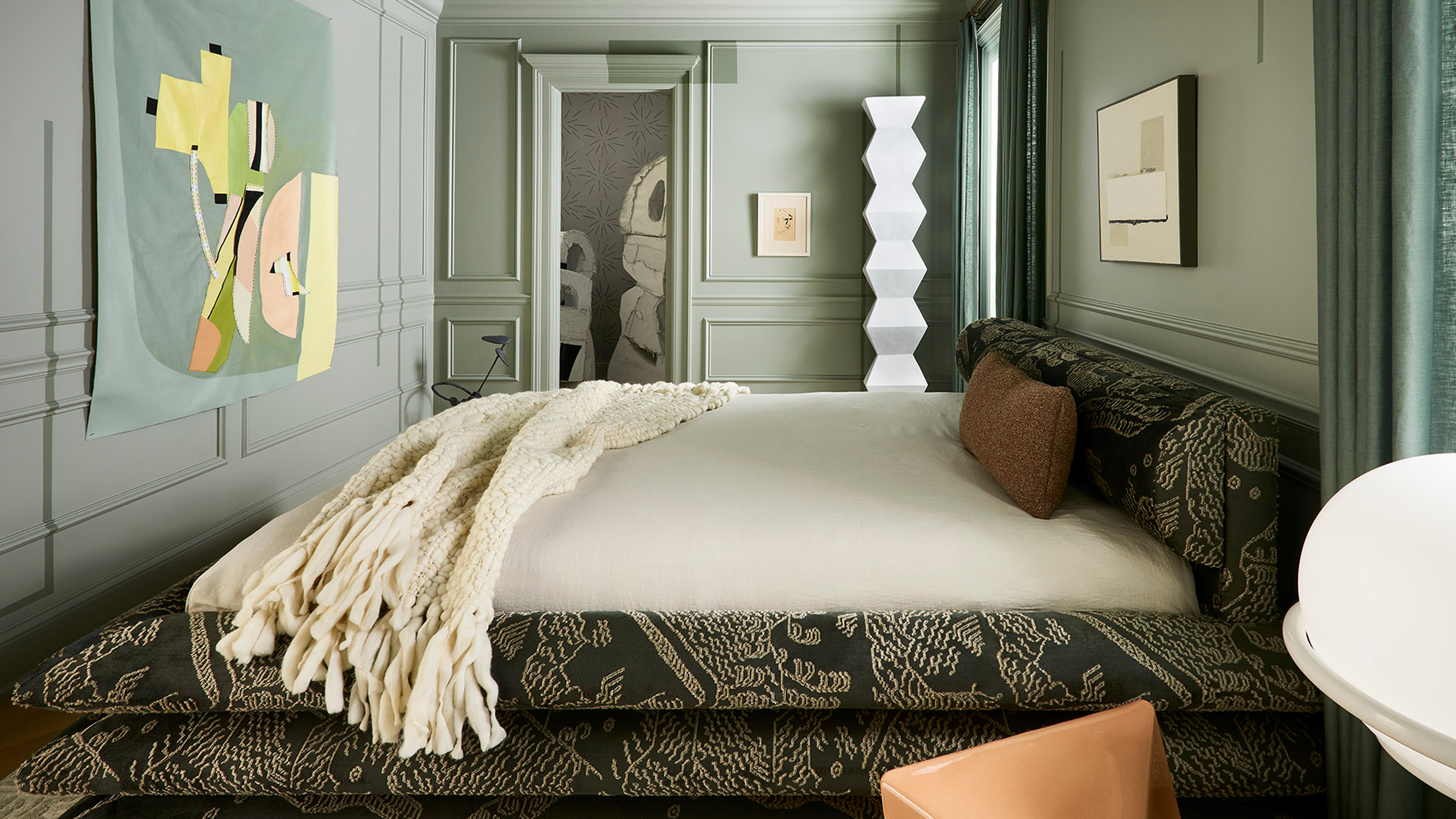

There's a reason that sage green paint is in high demand right now. 'Sage green is a beautiful muted green tone that can be versatile and visually interesting in just about any space,' explains Megan Dufresne, principal designer at interior design studio MC Design. It's a color that manages to be both on-trend and timeless at any given time.
It's a relaxing, peaceful color that can stand in for the likes of whites, grey and beiges without dominating a space. Not only has sage green been adopted as a near neutral, but there are also lots of colors that go with green in this muted, soft tone, making it a great backdrop to build your palette on.
So, now you're sold on sage green, but which of the many shades of sage green out there should you try for your walls? We asked designers and color experts for their favorite sage green paint colors to offer up some inspiration.
6 of the best sage green paint colors
What color do you think of when you think of sage green? For interior designers, it's a shade that runs quite a wide gamut of various green tones. From fresher, more yellow-toned greens to deeper, darker blue-green shades, the one thing they have in common is that they're on the muted side.
These designers have picked their own personal favorite shades of sage green paint across this range.
1. Dunn Edwards Floating Lily Pad
Reasons to buy
Reasons to avoid
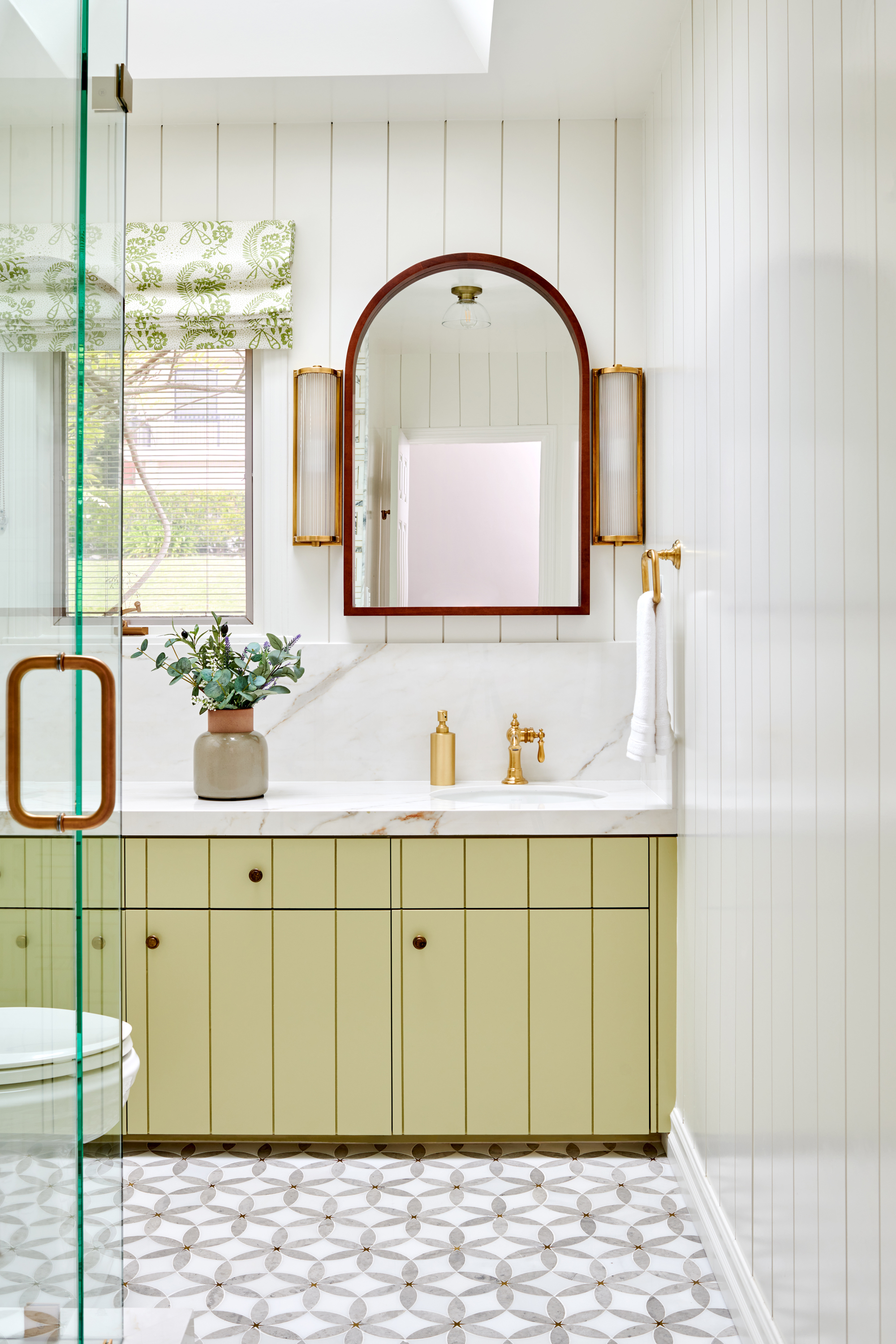
With a dash more yellow than many sage tones around, Dunn Edward's Floating Lily Pad is an interesting shade as it balances the soothing nature of sage with a slightly more energetic vibe.
'I will sometimes mix it with other green hues to create an expertly layered effect,' says MC Design's Megan Dufresne, who used Lily Pad for this modern bathroom vanity. 'In this way the sage tone creates the perfect backdrop, without becoming overpowering.'
2. Farrow & Ball Pond Green
Reasons to buy
Reasons to avoid
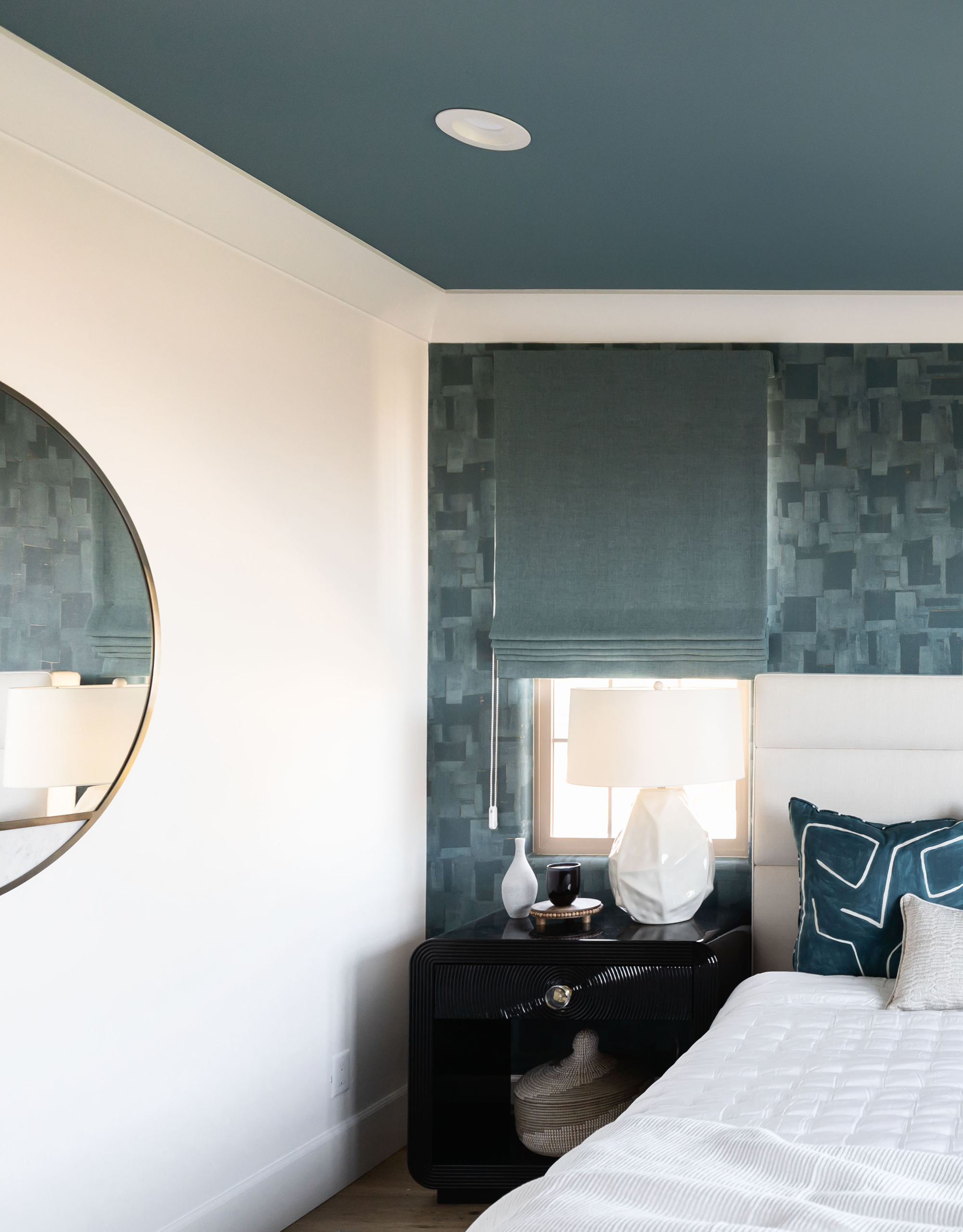
Undoubtedly one of the best Farrow and Ball paint colors from the archive, Pond Green is a deeper mix of green, blue and grey, offering a version of sage that's capable of making a statement, while retaining its calming superpowers.
'Our go-to sage shade is Farrow and Ball's Pond Green,' says Lauren Lerner, principal designer of Living with Lolo. 'This green is invigorating, serene, and invokes a feeling of being in nature. It's also an easy neutral to incorporate through an accent wall or accessories, which makes it a great choice for any room in the house.
3. Benjamin Moore October Mist
Reasons to buy
Reasons to avoid
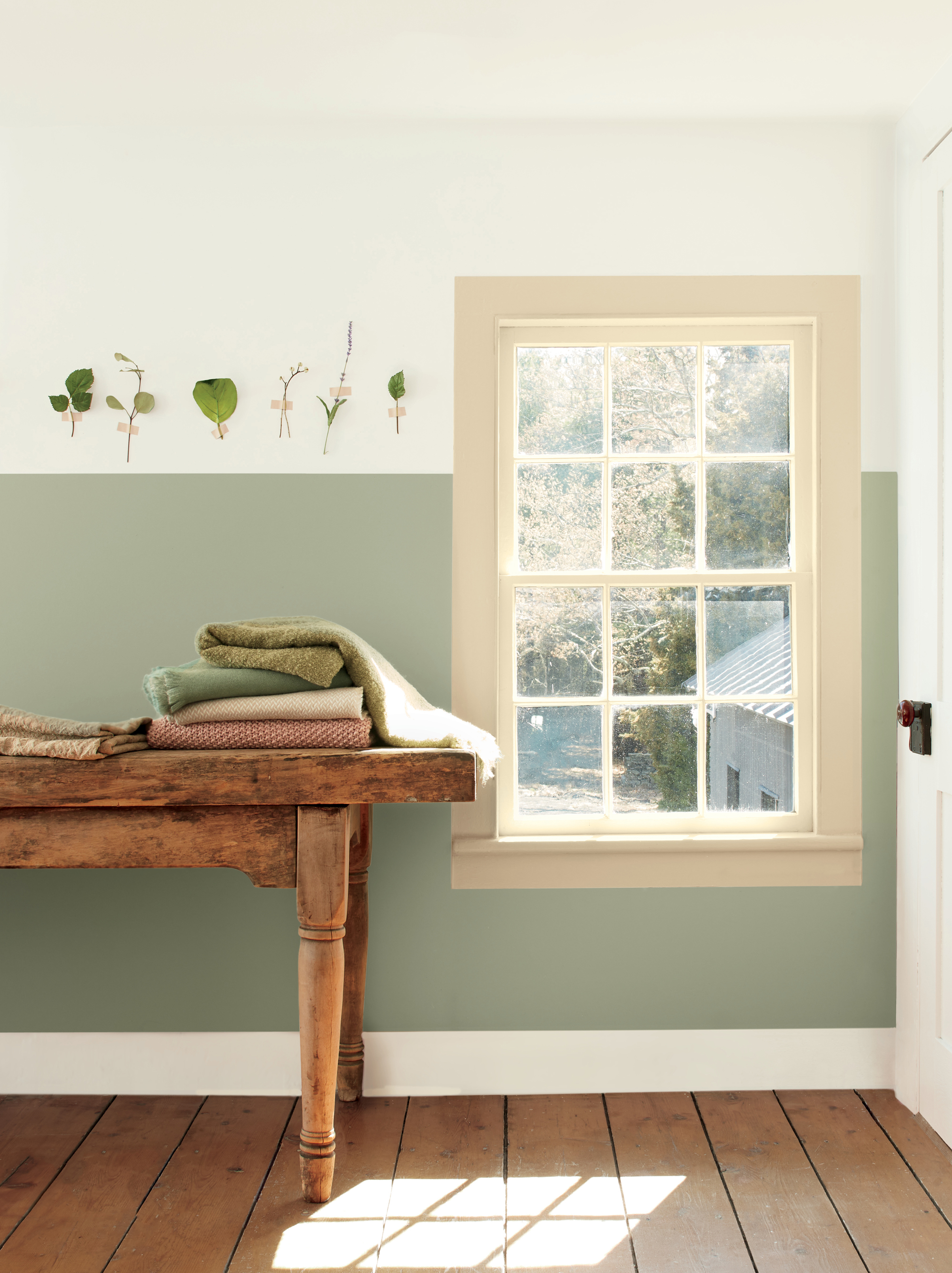
Proving sage green is both timeless and on-trend, Benjamin Moore named October Mist as its Color of the Year for 2022. It's the perfect mid-sage green - not too light, nor too dark, so a good starter shade for anyone dipping their toes in the sage green color pool.
'This Benjamin Moore shade gives just enough green for those who are not eager to commit,' says interior designer Jessica Davis of JL Design. 'It's a very muted green with some grey undertones.'
4. Farrow & Ball Green Smoke
Reasons to buy
Reasons to avoid
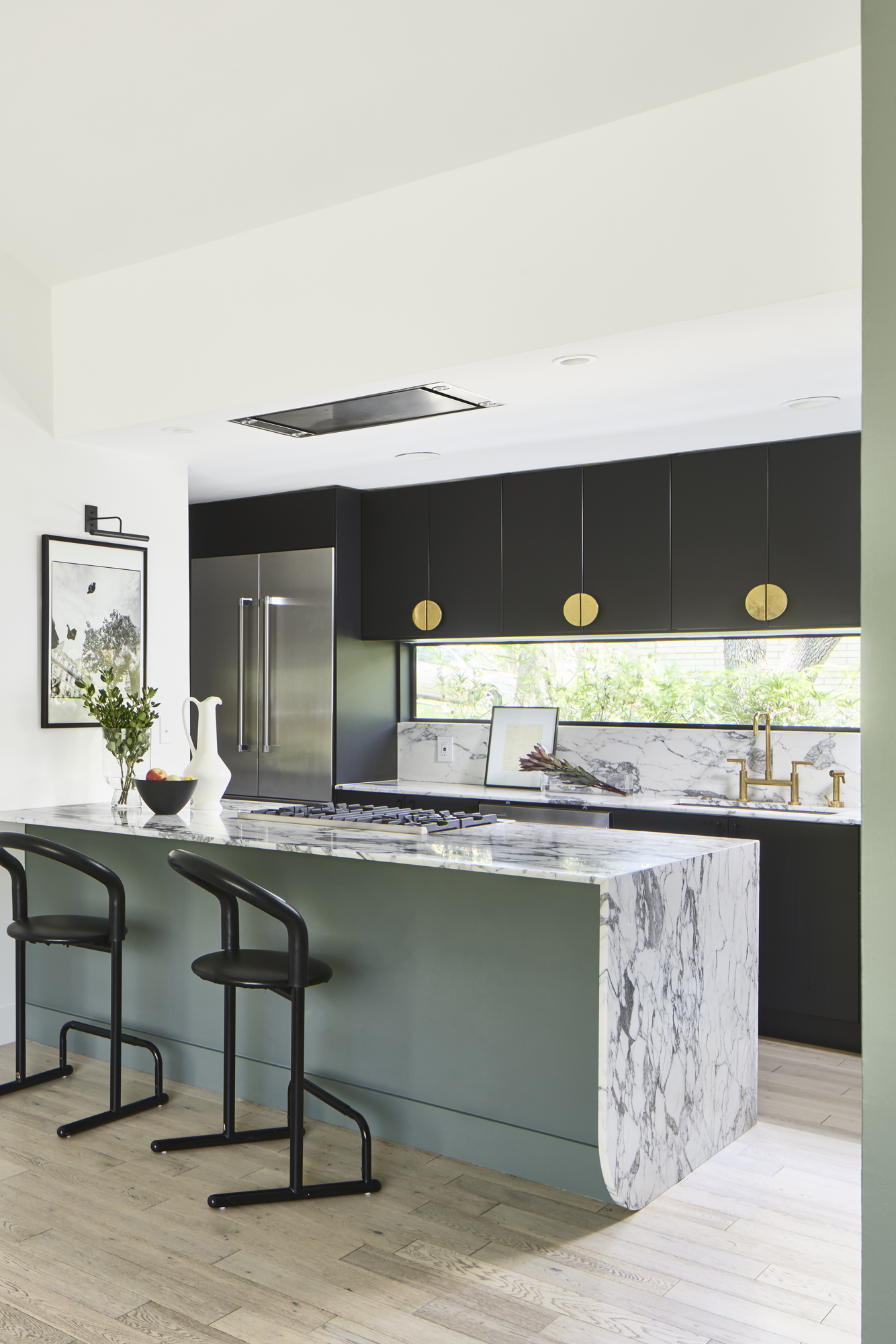
Sage green might feel best suited to more rustic style homes, but this kitchen goes to prove it has a place in modern design too. With a low saturation of green, Farrow & Ball's Green Smoke can read as grey in some lights, but for the right room, it adds that slight vibrancy that makes a scheme feel verdant, rather than dull.
'This sage feels clean and fresh,' says Sara Cukerbaum, principal designer of SLIC Design, who designed this sage green kitchen idea.
5. Little Greene Ho Ho Green
Reasons to buy
Reasons to avoid
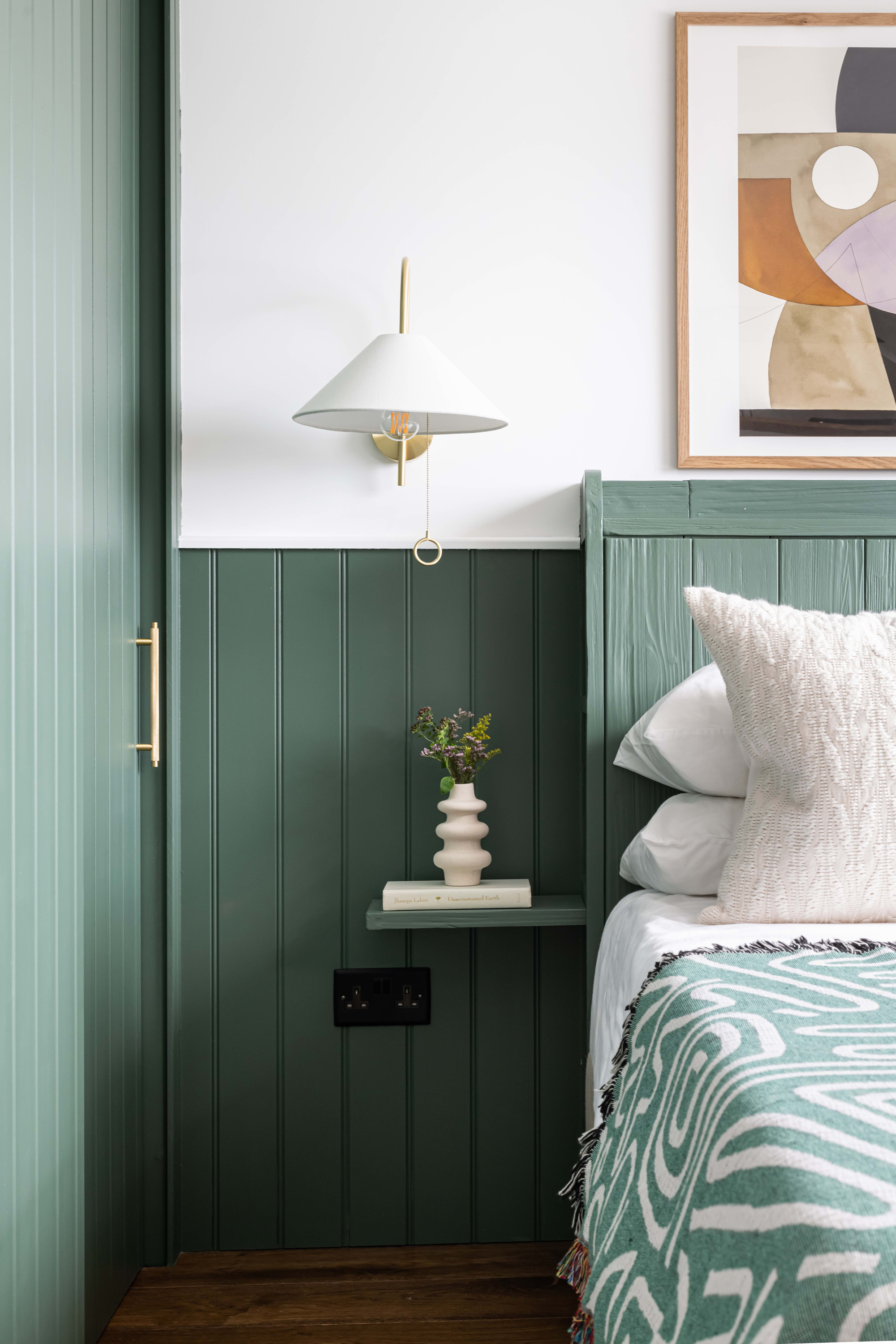
While a deeper shade, and rich with pigment, Ho Ho Green still has that near-neutral quality that makes it a choice that can suit all kinds of rooms and interior styles.
'We also find that darker sage green hues add more shadows and create different tones when the light hits,' say Jen and Mar of Interior Fox. It works well with brass tones, and rust and tan tones are also colors that go with this sage green.
6. Sherwin Williams Escape Gray
Reasons to buy
Reasons to avoid
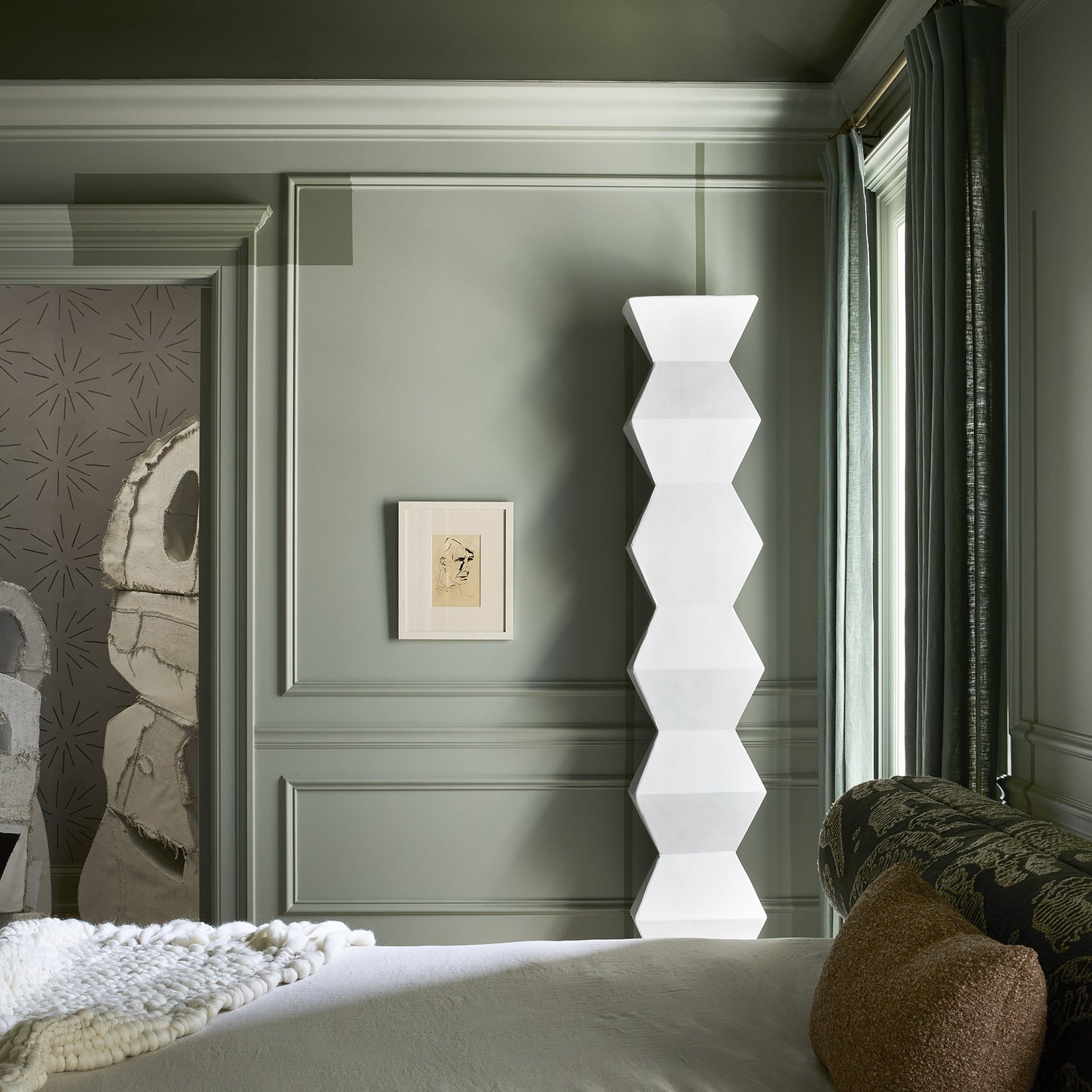
Sherwin Williams' Escape Gray feels like it best creates the balancing act between green and grey. At different times of day, your room might read like a soft warm grey, while at another those verdant green tones creep through.
'A mix with grey, this paint color combines a tone that brings a color like green into the updated neutral zone,' explains interior designer Jen Talbot, who created this sage green bedroom with Escape Gray.
How do I decorate a room with sage green?
Try sage with another shade of green for a look that has more layers and depth. Green is at the centre of the colour wheel, so you can combine it with both warm and cool hues. ‘To create a calming effect, marry sage green with cool grey-whites for a soft Scandi feel,’ says Helen Shaw, director at Benjamin Moore UK. ‘Or, for an earthier look, pair it with warmer off-whites or beige tones.’
‘For something bolder, think about adding red, especially at the browner end of the palette, such as oxblood,’ says Patrick O’Donnell, Farrow & Ball’s brand ambassador. ‘These are complementary hues on the colour wheel so will contrast effortlessly.’
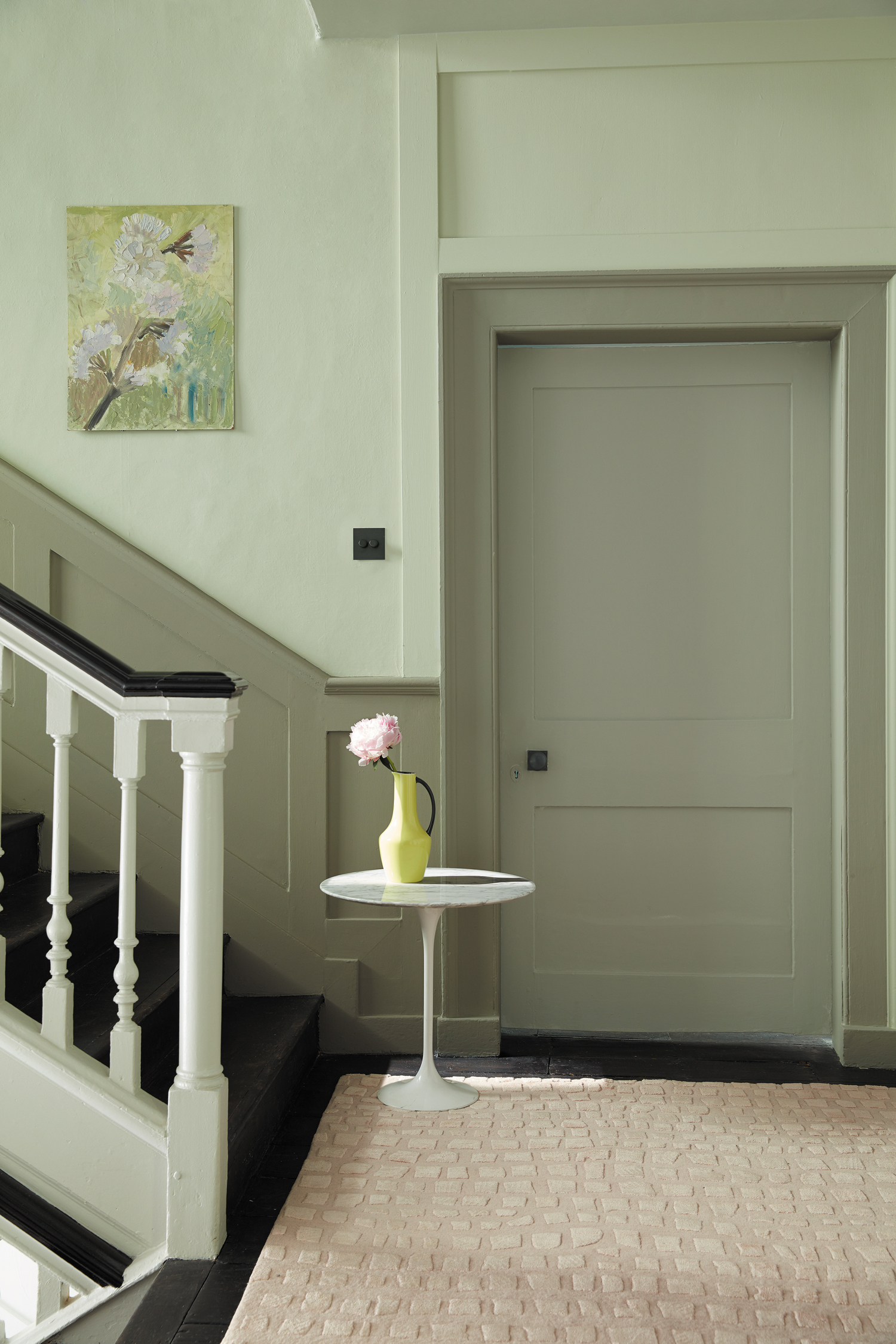
‘Sage green almost glows when hit by the sunlight, so my preference would be to use it in a south-facing room,’ says Judy Smith, Crown colour consultant. ‘However, it’s light enough to brighten up a darker space such as a hallway.’
‘In north-facing rooms, look for a shade with yellow undertones to bring warmth. For other aspects, cool or warm shades will work, changing with the light of the day,’ says Carol Campbell, director at Isle of Skye Paint Company.
To add interest, use different sheen levels in the same shade of sage. ‘For example, if you have picture rails, you could use eggshell on one section and matte on the other,’ says Paula Taylor, colour and trend specialist at Graham & Brown.
Be The First To Know
The Livingetc newsletters are your inside source for what’s shaping interiors now - and what’s next. Discover trend forecasts, smart style ideas, and curated shopping inspiration that brings design to life. Subscribe today and stay ahead of the curve.

Hugh is Livingetc.com’s editor. With 8 years in the interiors industry under his belt, he has the nose for what people want to know about re-decorating their homes. He prides himself as an expert trend forecaster, visiting design fairs, showrooms and keeping an eye out for emerging designers to hone his eye. He joined Livingetc back in 2022 as a content editor, as a long-time reader of the print magazine, before becoming its online editor. Hugh has previously spent time as an editor for a kitchen and bathroom magazine, and has written for “hands-on” home brands such as Homebuilding & Renovating and Grand Designs magazine, so his knowledge of what it takes to create a home goes beyond the surface, too. Though not a trained interior designer, Hugh has cut his design teeth by managing several major interior design projects to date, each for private clients. He's also a keen DIYer — he's done everything from laying his own patio and building an integrated cooker hood from scratch, to undertaking plenty of creative IKEA hacks to help achieve the luxurious look he loves in design, when his budget doesn't always stretch that far.
-
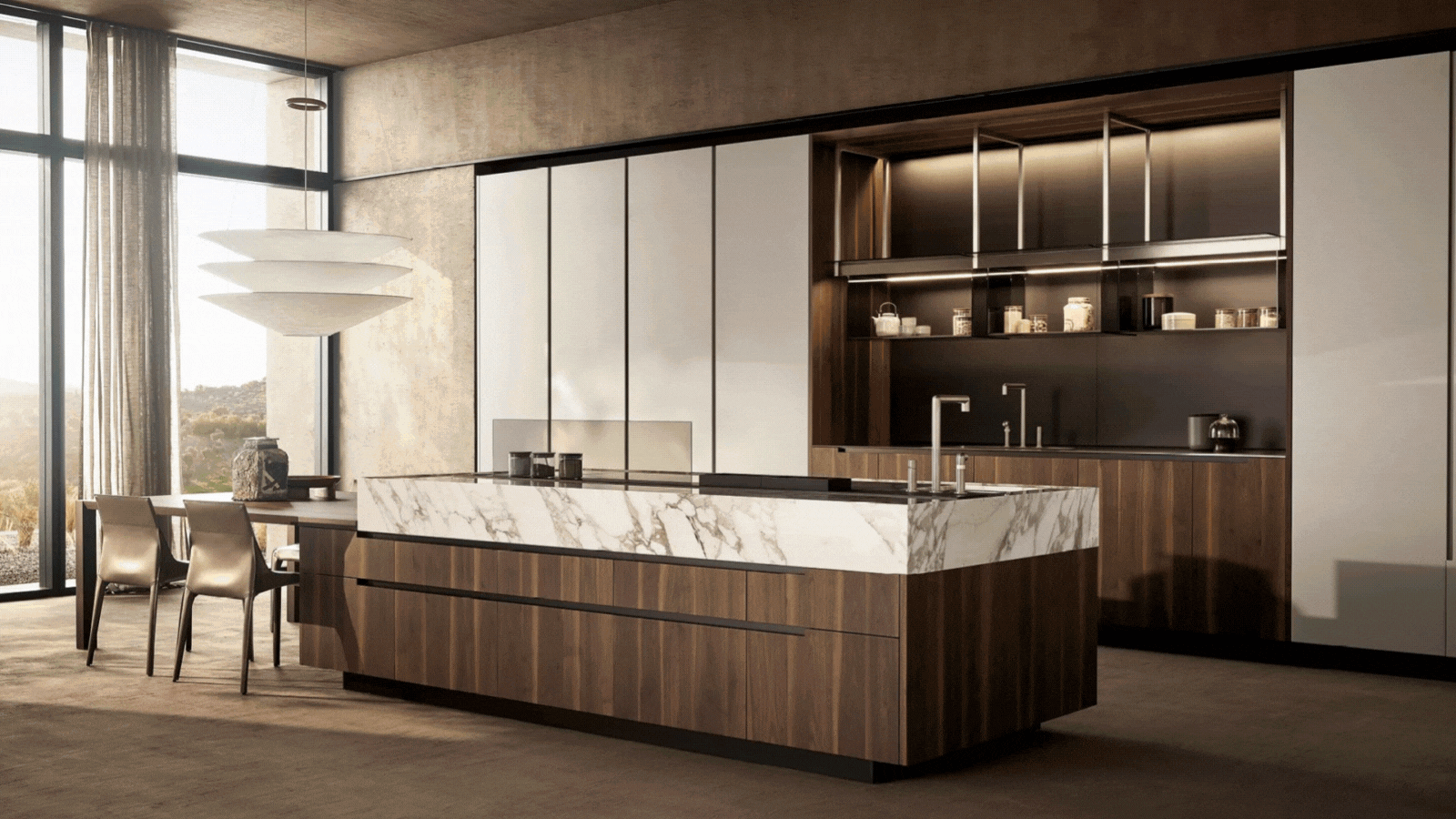 Italian Kitchen Trends — 5 Emerging Ideas From the Chicest Italian Designers That I Predict Will Go Global in 2025
Italian Kitchen Trends — 5 Emerging Ideas From the Chicest Italian Designers That I Predict Will Go Global in 2025Fresh from Milan Design Week, these are the exciting finishes, styles, and innovative materials I can't wait to see in more kitchens this year
By Faiza Saqib Published
-
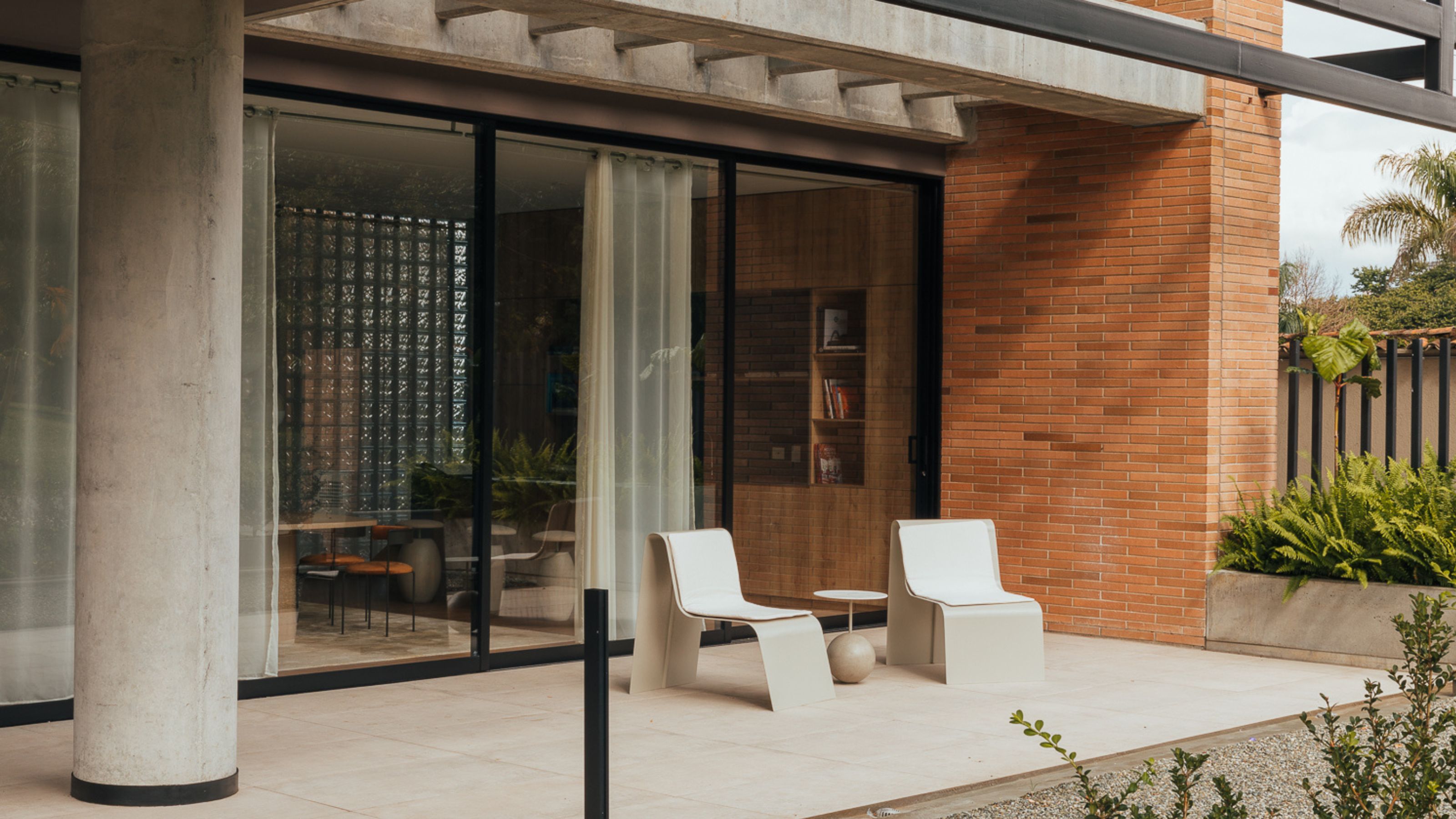 Small Patio Ideas — 8 Clever Ways to Style Up Even the Tiniest of Outdoor Spaces
Small Patio Ideas — 8 Clever Ways to Style Up Even the Tiniest of Outdoor SpacesIf you're dreaming of turning your small patio into a dream space the right combination of practical and creative ideas will help you max up its potential
By Sarah Wilson Published